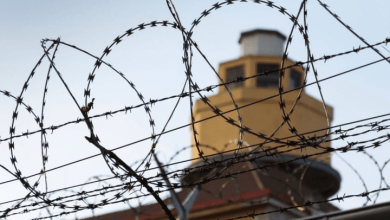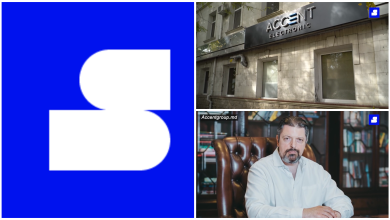Moderating Comments to Religious News Items Remains a Challenge for Newsrooms, According to the IJC Monitoring

Topics related to religion and international conflicts in the Middle East which frequently appeared in the press in the Republic of Moldova during 2024, were most often accompanied by negative comments and aggressive language from the audience. This statement results from the monitoring conducted by the Independent Journalism Center (IJC), which identified and reported approximately 129 press materials on religious topics during the year, stating that they were accompanied by messages inciting hatred, discrimination, homophobia, or anti-Semitism. The monitoring was focused on the Unimedia.info online portal and the Stiri.md aggregator and was part of the “Get the Trolls Out!”/GTTO project implemented by the Media Diversity Institute (MDI) as the fifth stage of a program encouraging young people to counter discrimination and religious intolerance in Europe.
According to Zina Savenco who was in charge of monitoring, the IJC had a task of randomly selecting several media outlets and analyzing the way they covered religious topics and international conflicts in the Arab states. Since not all the broadcasting media outlets’ websites offered for monitoring had functional fields for comments, it was decided to monitor two of the most popular online media platforms in Moldova (Unimedia.info and Stiri.md) which provided an opportunity for the public to comment on published materials to see to which extent they were moderated.
“We monitored the Unimedia.info portal from January to December, and the Stiri.md website from April to December. Although the representatives of the two newsrooms prepared the press materials in compliance with the ethical standards, in 92 articles on Unimedia.info and in 37 articles published by Stiri.md, users’ comments contained anti-Christian, anti-Muslim, and anti-Semitic hate speech, including insults, incitement to violence, stereotypes, and other sorts of breaches,” Zina Savenco mentions.
Following the analysis, the two newsrooms were notified of the need to moderate the comments in order to avoid derogations from legal and deontological requirements.
Specifically, the Unimedia.info newsroom was notified by the IJC of the need to develop the Terms and Conditions section as soon as possible: it was supposed to list specific provisions related to users’ behavior and language, and to ensure moderation of comments which had to be approved or deleted depending on the rules of the website. “Unfortunately, this section currently remains ‘under construction,’ which could indicate that the newsroom did not take its task seriously or did not make all the efforts required to settle this issue. The situation remains the same even though Olesea Bolboceanu, the portal administrator, has assured us in her response to the IJC notification that ‘the work to improve the situation is being done.’ A gratifying fact we would like to mention is that the portal displays a provision informing the public that, ‘according to the legislation, we are obliged to censor comments which incite hatred, represent an attack on a particular person, or contain obscene words. We urge you to discuss decently!’”
Unlike Unimedia.info, the Stiri.md newsroom has a functional comments section and clear rules for adding them. However, this website was also notified by the IJC about certain deviations identified in the readers’ comments. In her reply to the IJC notification, manager Cristina Lupu informed us that the IJC’s request was transmitted to the website moderation team to complete the rules with “more specific provisions for those who use obscene language or write insulting, negative, discriminatory comments inciting hatred.”
“In the preamble to the comment section, the newsroom mentions that ‘the editors are not liable for readers’ opinions. Please speak freely, but be polite and comply with the rules.’ Nevertheless, the users’ messages are full of slang, obscene words, and hate speech, which means that the newsroom does not pay enough attention to moderating them,” Zina Savenco specifies.
At the same time, the IJC team monitored several Facebook pages belonging to the sources (Unimedia, KP, Primul in Moldova, TV6, etc., as well as the pages of political parties affiliated with Ilan Sor). “Until the beginning of the pre-election term, anti-Semitic comments addressed to Ilan Sor could frequently be seen on these pages. Later, during the election campaign, trolls’ ‘activation’ became obvious: they published exclusively messages in his support and against the governance. Currently, these pages are inactive and do not produce any content any longer,” Zina Savenco explains.
The expert mentions that “the press plays a crucial part in shaping public opinion and in amplifying stereotypes, prejudices, and hate speech. Moderating comments is an urgent necessity and a responsibility for any media outlet which cares about ethical standards and its own image on the media market.”
According to the Deontological Code, “media outlets administering webpages, as well as pages/accounts on social networks, shall not allow any derogations from legal and deontological standards and shall not accept them, even from the public, in their reactions (comments).” In order to support journalists in their compliance with deontological provisions when preparing materials on religious topics and to avoid spreading any sorts of discrimination, during 2024, the IJC published several articles, interviews with specialists in the relevant sphere, and minority groups representatives, as well as various recommendations available on the Media Azi and Mediacritica websites and on social networks.




